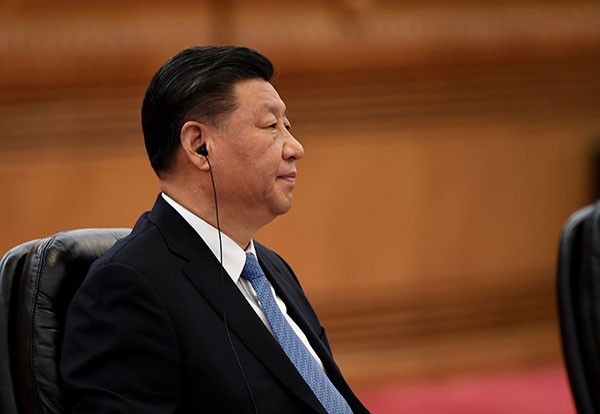In a significant reshuffling of China's military leadership, President Xi Jinping has appointed new heads to the People's Liberation Army (PLA) Rocket Force, the unit responsible for the nation's conventional and nuclear missiles. The move comes amid escalating geopolitical tensions and speculation about internal corruption within the ranks.
Wang Houbin, the former deputy commander of the navy, has been named the new head of the PLA Rocket Force, while Xu Xisheng, a member of the party's central committee, has been appointed as its new political commissar. Both men have been promoted to the rank of general, the highest rank for active service officers in China.
The appointments have sparked speculation about the whereabouts of the previous head of the unit, General Li Yuchao, and his deputy, General Liu Guangbin. Reports suggest that the pair, along with Li's former deputy, Zhang Zhenzhong, may be facing corruption probes.
The reshuffling of the PLA Rocket Force leadership comes on the heels of the 96th anniversary of the PLA's founding and is seen as part of Xi's broader efforts to exert tighter ideological control over China's armed forces. The move is also viewed as a response to the recent Wagner rebellion in Russia, a failed mutiny by a large mercenary group that attempted to overthrow the country's military establishment.
The PLA Rocket Force has been the recipient of significant funding aimed at expanding China's nuclear arsenal. This high-level purge occurs amidst China's not-so-transparent effort to significantly expand its nuclear forces. The unexpected personnel changes, coupled with the recent dismissal of Chinese Foreign Minister Qin Gang, mark one of China's most profound leadership shake-ups in years.
Xi has repeatedly referred to the Rocket Force as China's core strategic deterrence power against the United States. This reshuffling of the leadership underscores Xi's commitment to maintaining "absolute leadership over the military" and highlights the ongoing efforts to exert tighter ideological control over China's armed forces.





